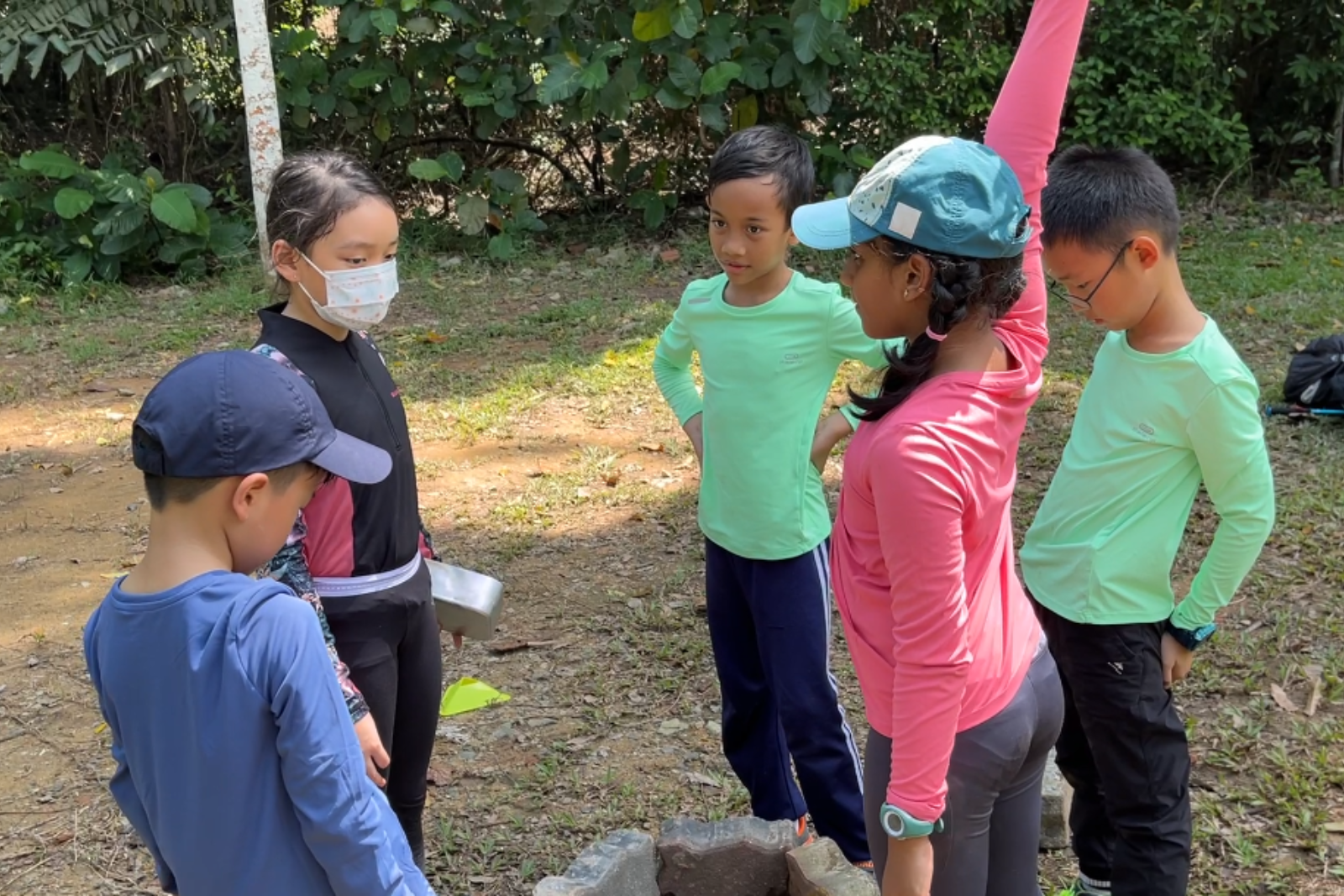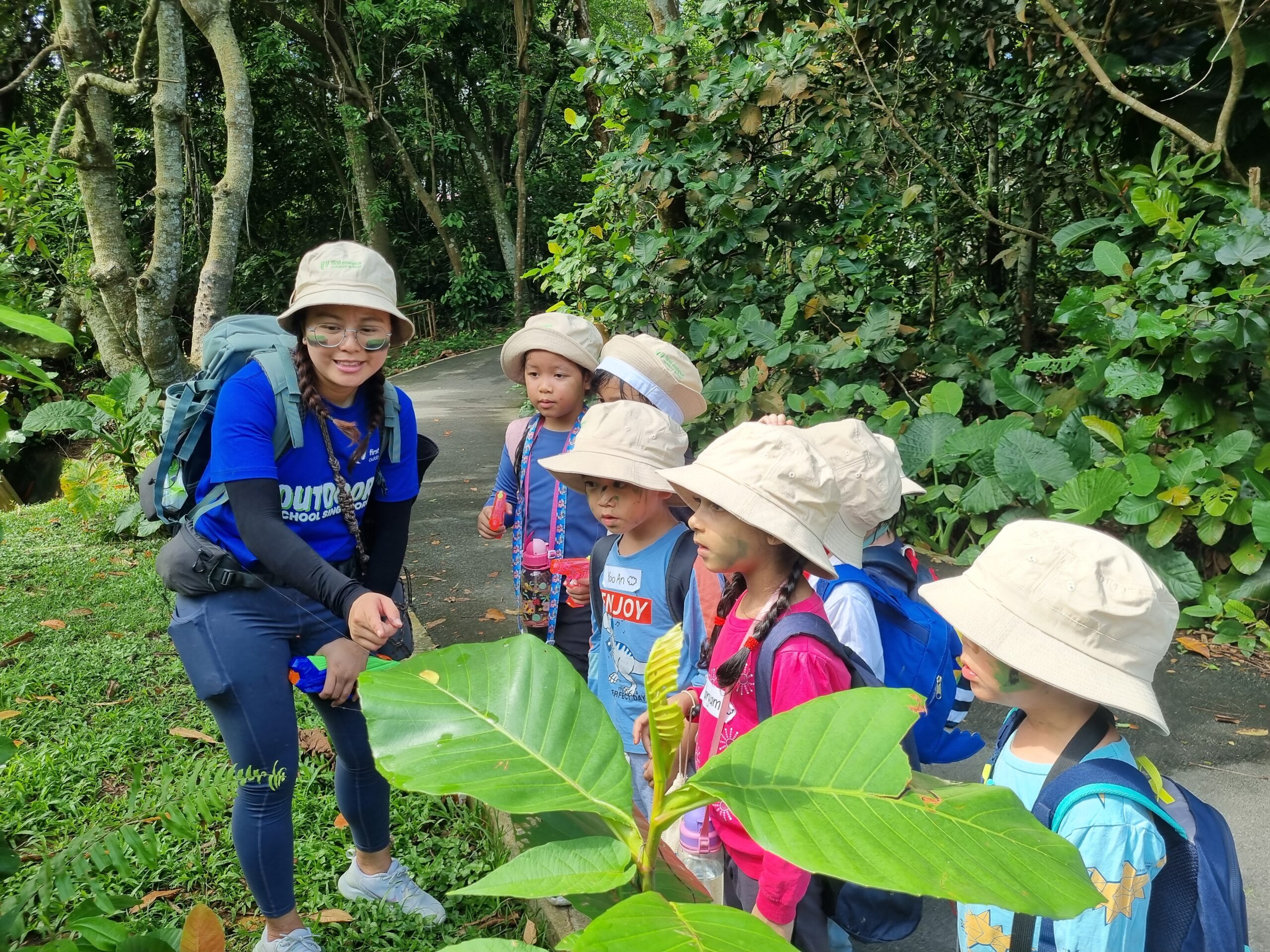![]()
![]()
The Benefits of Outdoor Learning for Children
PUBLISHED
03 June 2024

Did you know that outdoor play and outdoor learning should be actively encouraged among children as they offer a plethora of positive effects on their well-being? Despite this, a study published in 2021 by the British Journal of Ophthalmology discovered that Singaporean children are not spending sufficient time outdoors, averaging 1 to 1½ hours outdoors each weekday and one to two hours outdoors on weekends.
However, a lack of time outdoors increases your child’s risk of myopia and deprives them of various opportunities to develop essential skills crucial for future success. After all, the great outdoors not only allows them to explore, discover, and appreciate the natural world. It also helps them strengthen and develop their fine and gross motor movement skills! But the benefits of outdoor learning do not stop here. Let us share the top advantages with you.
1. Establish A Deeper Connection With Nature
Being outdoors in nature allows your child to see its beauty as you do. More importantly, they learn to interact with its offerings, becoming more hands-on with the environment and establishing a deeper connection with Mother Earth. This is a good thing, as nature often provokes children into thought and encourages them to formulate their own play ideas, stimulating your child’s development domains in every major way.
Our Wild Troopers programme ignites curiosity and appreciation for nature in children, as they become absorbed and completely attentive to what is at hand when they explore the various local flora and fauna. From repurposing large leaves as a makeshift umbrella to learning how to blend into the environment with their camo, your child will be guided on how to utilise their surroundings and natural materials in practical ways.
2. Improves Your Child’s Sensory Skills
Outdoor environments offer rich and diverse sensory opportunities, stimulating your child’s senses of touch, sight, smell, and hearing. Through directed learning, educators can guide them to engage in multisensory experiences that pique their natural curiosity, encouraging them to investigate various objects and materials using their senses.
For instance, our Young Hikers learning programme acquaints children with nature by engaging their senses and honing their observational skills as they trek through two different parks – Windsor Nature Park and Lower Peirce Reservoir – and discover the diversity of wildlife within. This exposure to stimuli helps enhance their sensory processing and overall cognitive ability while deepening their learning and engagement with their surroundings, showcasing the wonders of the world to them!
3. Provides Your Child With Opportunities For Hands-On Learning
Have you heard of the VAK (visual, audio, and kinesthetic) Learning Styles model? In that case, you will know that some children excel through this more hands-on approach. If your child has a similar learning style, they will likely appreciate outdoor learning, as it offers first-hand learning opportunities that no lesson or book can provide.
AT NTUC First Campus Outdoor School Singapore, our hands-on activities are unstructured in nature and designed to encourage children to embrace self-directed learning, motivating them to explore freely and think creatively to devise innovative solutions to the task at hand, thus developing their creativity and problem-solving skills. This approach also helps them feel more invested and interested in the topics introduced to them.
4. Encourages Risk-Taking
Many parents are understandably anxious when they think of the possibility of placing their children in risky situations. However, life brings inevitable risks, and children must learn to develop the confidence and bravery to tackle them head-on.
Moreover, when children are faced with such challenges, they will be compelled to innovate and develop creative solutions to overcome these problems. Accomplishing this also transforms them into confident individuals.
However, rest assured that while our outdoor preschool programmes offer activities designed to facilitate risk-taking, your child’s safety is our utmost priority. Your child will only be encouraged to take safe risks that hone their resilience and risk-taking abilities – skills that are essential for life.
For example, under the supervision of our trained instructors, our Tall Timber learning programme provides children with plenty of ‘risky play’ opportunities, such as knot-tying and shelter-building activities, to teach them basic survival skills and how to keep themselves safe in the great outdoors.
5. Keeps Your Child Healthy
When learning outdoors, your child has the luxury of space to climb, jump, move about, and explore the landscape. Whether they are hiking through a nature trail or scampering about the playground, these simple movements utilise their various muscles, strengthening them and keeping them healthy. Furthermore, depending on the type of outdoor learning activities, they can develop their fine and gross motor movement skills, enhance agility and balance, and practise coordination.
Extending Outdoor Adventures to Preschoolers and Primary School-Aged Children
As you can see, there are various benefits to outdoor learning. That is why we are keen to extend safe, age-appropriate outdoor programmes to as many preschoolers and primary school-aged children as possible to allow them to experience outdoor adventure learning that facilitates their growth and development. If you are interested in learning more about our holiday camps, do not hesitate to visit Outdoor School’s website or register your interest today.
Topics:
Share this article
Newsroom
Stay informed on the latest news and happening in NFC and the industry






